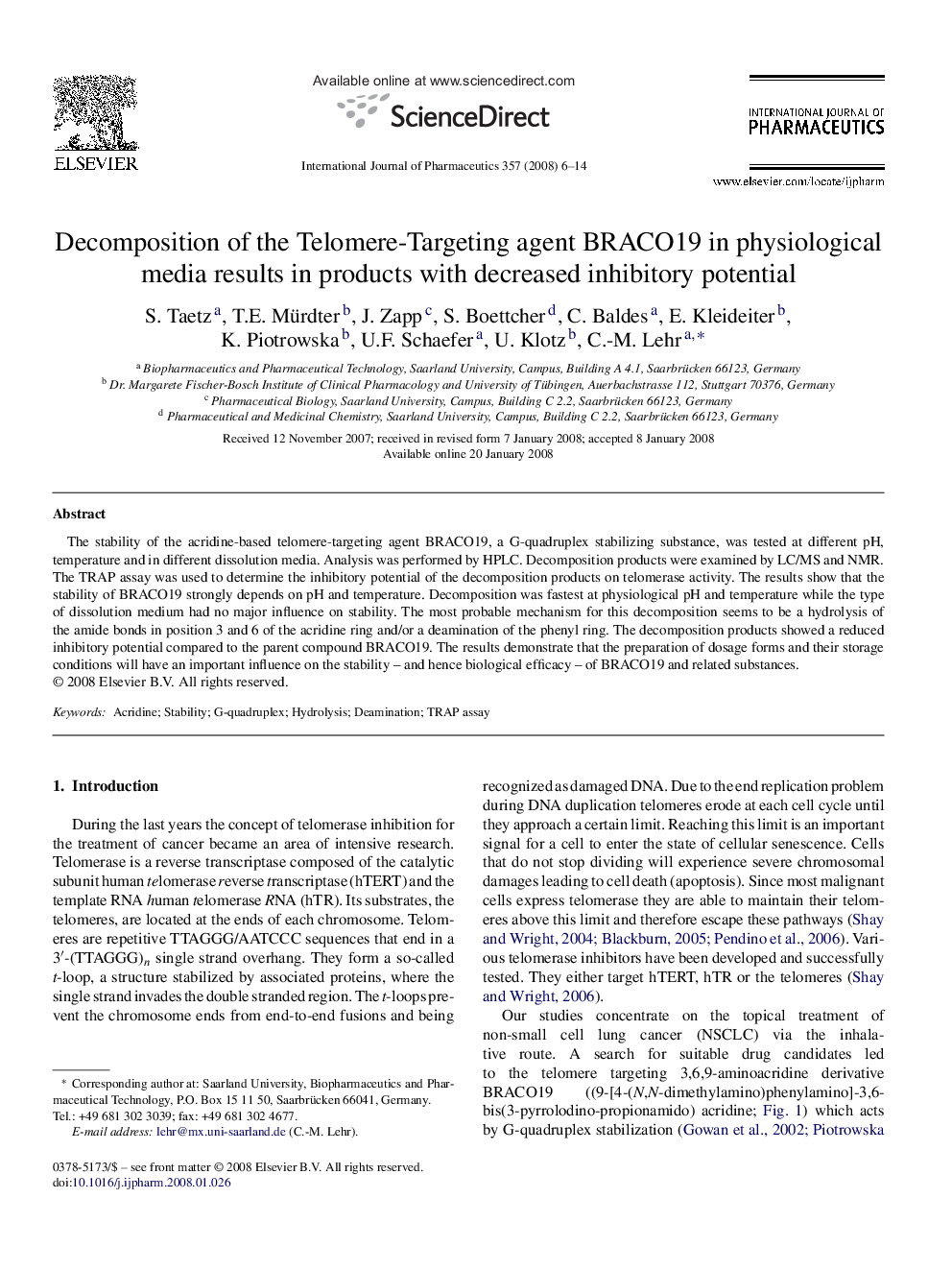| Article ID | Journal | Published Year | Pages | File Type |
|---|---|---|---|---|
| 2505286 | International Journal of Pharmaceutics | 2008 | 9 Pages |
The stability of the acridine-based telomere-targeting agent BRACO19, a G-quadruplex stabilizing substance, was tested at different pH, temperature and in different dissolution media. Analysis was performed by HPLC. Decomposition products were examined by LC/MS and NMR. The TRAP assay was used to determine the inhibitory potential of the decomposition products on telomerase activity. The results show that the stability of BRACO19 strongly depends on pH and temperature. Decomposition was fastest at physiological pH and temperature while the type of dissolution medium had no major influence on stability. The most probable mechanism for this decomposition seems to be a hydrolysis of the amide bonds in position 3 and 6 of the acridine ring and/or a deamination of the phenyl ring. The decomposition products showed a reduced inhibitory potential compared to the parent compound BRACO19. The results demonstrate that the preparation of dosage forms and their storage conditions will have an important influence on the stability – and hence biological efficacy – of BRACO19 and related substances.
